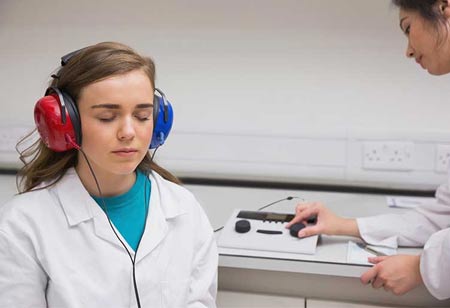Tech-Driven Recovery: UK Invests in AI and VR
Wearables and Virtual Reality are new tools changing addiction recovery, offering real-time health monitoring and immersive therapy to help individuals manage triggers and build coping skills.

By
Medical Care Review | Wednesday, August 06, 2025
Stay on top of your health and well-being with exclusive feature stories on the top medical clinics and treatment centers, expert insights and the latest news delivered straight to your inbox. Subscribe today.
FREMONT, CA: The UK government has invested £12 million in innovative technology to combat addiction. This funding supports projects exploring artificial intelligence and virtual reality (VR) wearables. real-time health monitoring and controlled exposure therapy through these technologies is going to allow individuals to confront triggers and develop effective coping strategies It is a promising new avenue for addiction recovery and mitigating its associated social problems.
One example is PneumoWave ALERT, a life-saving project combining a chest-worn sensor and a mobile device. This technology tracks breathing and immediately alerts nearby antidote carriers and emergency services upon detecting an overdose.
Someone recovering from alcohol addiction might experience a virtual bar setting, where they practice resisting the urge to drink. This exposure therapy allows them to rehearse coping strategies without real-world risks. VR also offers mindfulness training and stress relief exercises, enhancing emotional regulation. Personalised scenarios and real-time feedback make VR a powerful, engaging aid in recovery.
Another VR-based program that uses simulations to help individuals visualise their recovery journey and practice making healthier choices. Personalised, real-time feedback allows patients and therapists to assess progress and adjust treatment as needed, ensuring a tailored recovery experience.
Many Startup businesses are also using VR to build a ‘therapeutic alliance with the self’, helping them visualise their future with or without substance use. This experience enables people in recovery to have a personalised virtual experience resulting from their choices in alternate futures.
It allows individuals to virtually travel 15 years into the future, where they can meet two potential versions of themselves—one living in recovery and one still struggling with addiction. This innovative approach allows users to visualise two potential futures based on the choices they make regarding substance use. By immersing users in these alternate realities, Relate XR helps individuals explore the long-term consequences of their decisions and motivates them to choose recovery.
This form of experiential therapy taps into the emotional and cognitive aspects of addiction recovery, encouraging individuals to reflect on their future well-being rather than simply focusing on immediate cravings or urges. By offering a personalised and engaging method for individuals to see themselves in both scenarios, Relate XR aims to strengthen motivation for long-term sobriety, reinforcing the belief that recovery is worth striving for.







